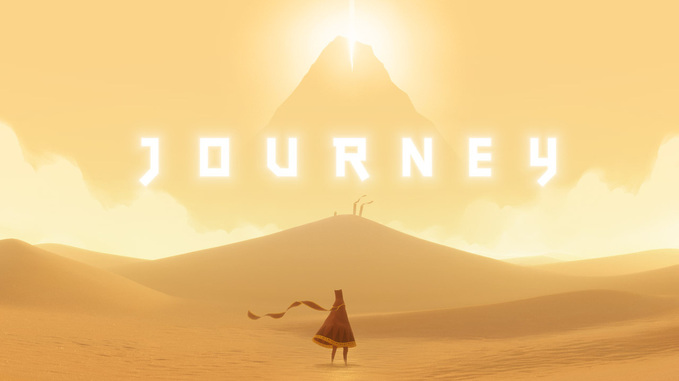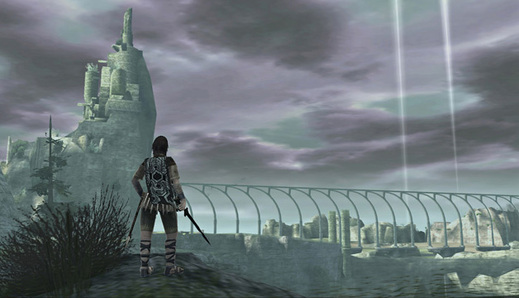If you get in to writing at all, you'll come across some form of improv writing. It could be called something else like free writing or prompted writing, but I'll stick with improv here. The idea is that you take a phrase, word, or concept from somewhere else and begin writing on it, usually with a pretty short time limit.
It's a simple exercise meant to get you writing. You don't have to come up with the initial idea, so you're able (in theory) to jump right into the writing. In practice, there is often some stuttering as you try to kick off a short story with some bizarre phrase like "He only saw the colours of excitement and treachery."
I've come across variations on this exercise in every writing class I've ever taken, and I've done it with a couple of groups of writers outside of those classes. I've realized that I get a lot more out of it now than I did when I started. It turns out that even though this is supposed to be an opportunity to be free and open, it takes some practice to do that in a way that is useful. After all, this is meant to somehow better your writing, not just take up time while you're in a class.
The first step is accepting that you will write some bad stuff. Before you even see the prompt, look to your writing hand and apologize for the dreck you're going to be making it write out. This was my problem for years when I was starting out. I'd get a prompt and try to be clever. I'd try to craft a tight story out of whatever random quote I'd pulled. And I would, more often than not, write very little; what I did write wasn't clever or neat. It sounded hollow and the author's voice was overwhelmingly apparent.
But when you start to get out of your own way and just write, you get something more natural. It's still bad, and in my case it rarely has much arc or plot to it, but at least it sounds like a story and not a writer trying some experiment with words. Then, when you get rolling, you just start adding the pieces together until you get to some kind of an ending. It's okay if it just drops off at the last sentence. Like I said, it'll usually be bad anyways.
Though I didn't realize it for a very long time, I think these excercises teach you two really important things. One, writer's block is an excuse. You can always write something, and something is always better than nothing. Once you start, you're over that intimidating initial hump. The second less is that putting a plot together is simple if you build up from where you are. Even in a bizarre, ultra-messy, improv writing piece, it's much easier to look at what you already have and add an element or two to turn it into a story and not a collection of things. The alternative, which is figuring out an ending and pulling the characters and world towards it, can be very tricky and often unsatisfying. You don't really have time for that kind of approach. In your own work, you might find a project that warrants that, but I feel that it will always be a more difficult method than simply building on what you have while keeping a rough framework in mind.
These are really helpful now that I write full-time. I don't get the luxury of time or full creative freedom. Everyday, I work to a deadline and using ideas brought to me (at least partially) by other people. Ideally, what I'm writing is better than the fifteen minute rush jobs I was doing in the Here Be Monsters writing groups.
What I don't understand is why none of this was ever broached when I was in school. It seemed like we would do improv writing to "loosen us up". But the reasons for doing it weren't made clear. I would have loved to have a teacher talk about why we do what can seem to be frivolous writing games. Perhaps this is just obvious? Maybe it's something to do with my learning style and wanting to have a goal for what I'm going to learn in mind. Either way, I'm glad I was told to do it.
It's a simple exercise meant to get you writing. You don't have to come up with the initial idea, so you're able (in theory) to jump right into the writing. In practice, there is often some stuttering as you try to kick off a short story with some bizarre phrase like "He only saw the colours of excitement and treachery."
I've come across variations on this exercise in every writing class I've ever taken, and I've done it with a couple of groups of writers outside of those classes. I've realized that I get a lot more out of it now than I did when I started. It turns out that even though this is supposed to be an opportunity to be free and open, it takes some practice to do that in a way that is useful. After all, this is meant to somehow better your writing, not just take up time while you're in a class.
The first step is accepting that you will write some bad stuff. Before you even see the prompt, look to your writing hand and apologize for the dreck you're going to be making it write out. This was my problem for years when I was starting out. I'd get a prompt and try to be clever. I'd try to craft a tight story out of whatever random quote I'd pulled. And I would, more often than not, write very little; what I did write wasn't clever or neat. It sounded hollow and the author's voice was overwhelmingly apparent.
But when you start to get out of your own way and just write, you get something more natural. It's still bad, and in my case it rarely has much arc or plot to it, but at least it sounds like a story and not a writer trying some experiment with words. Then, when you get rolling, you just start adding the pieces together until you get to some kind of an ending. It's okay if it just drops off at the last sentence. Like I said, it'll usually be bad anyways.
Though I didn't realize it for a very long time, I think these excercises teach you two really important things. One, writer's block is an excuse. You can always write something, and something is always better than nothing. Once you start, you're over that intimidating initial hump. The second less is that putting a plot together is simple if you build up from where you are. Even in a bizarre, ultra-messy, improv writing piece, it's much easier to look at what you already have and add an element or two to turn it into a story and not a collection of things. The alternative, which is figuring out an ending and pulling the characters and world towards it, can be very tricky and often unsatisfying. You don't really have time for that kind of approach. In your own work, you might find a project that warrants that, but I feel that it will always be a more difficult method than simply building on what you have while keeping a rough framework in mind.
These are really helpful now that I write full-time. I don't get the luxury of time or full creative freedom. Everyday, I work to a deadline and using ideas brought to me (at least partially) by other people. Ideally, what I'm writing is better than the fifteen minute rush jobs I was doing in the Here Be Monsters writing groups.
What I don't understand is why none of this was ever broached when I was in school. It seemed like we would do improv writing to "loosen us up". But the reasons for doing it weren't made clear. I would have loved to have a teacher talk about why we do what can seem to be frivolous writing games. Perhaps this is just obvious? Maybe it's something to do with my learning style and wanting to have a goal for what I'm going to learn in mind. Either way, I'm glad I was told to do it.



 RSS Feed
RSS Feed